When exploring Aristotle's political thought, especially in his work “Politics”, it is impossible to ignore his reflections on violence and its role in society and in the formation of States. This article seeks to decipher and understand how Aristotle approaches violence in this seminal work. Additionally, we will address the implications of his ideas for contemporary governments and for the modern understanding of political violence.
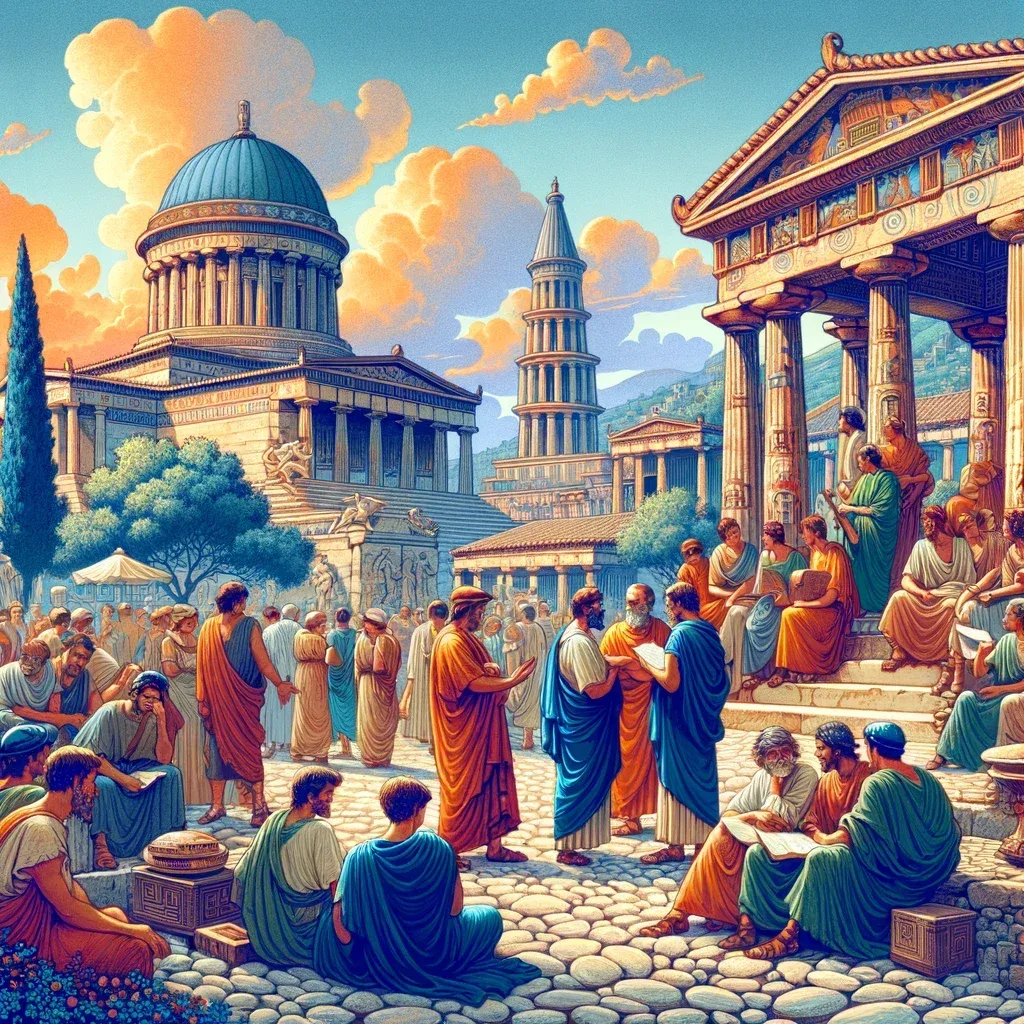
The Philosophical and Historical Context of the Work
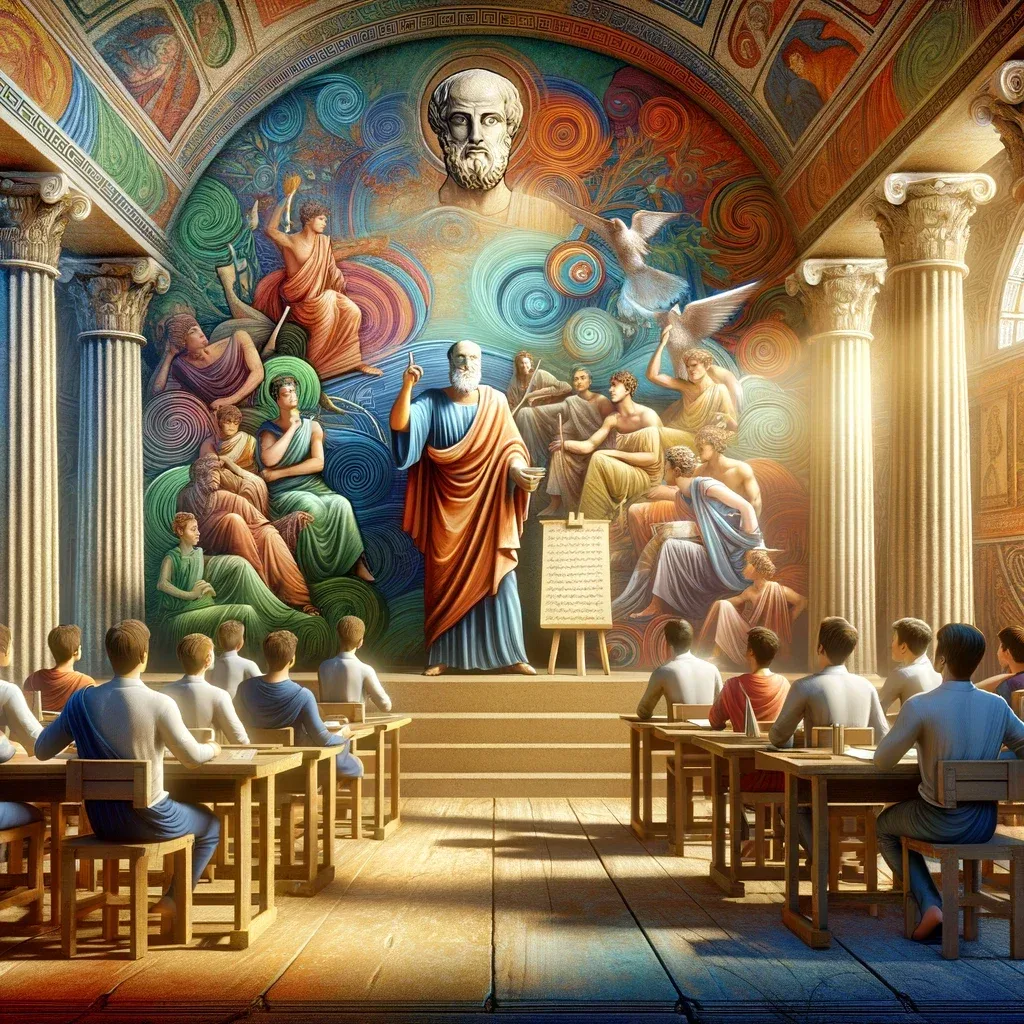
The Origins of Aristotle's Political Philosophy
Aristotle, disciple of Plato and tutor of Alexander the Great, was one of the most influential philosophers of Antiquity. In “Politics”, he addresses various aspects of life in society, including the organization of the State and the ethics that should govern it. His approach is marked by pragmatism and empirical observation, differentiating himself from his master Plato, who idealized a republic governed by philosophers.
Violence in Ancient Greece
In Ancient Greece, violence was an intrinsic reality in relations between city-states and in the maintenance of internal order. Wars were frequent, and the subjugation of people considered “inferior”, such as slaves, was common. This historical context is fundamental to understanding Aristotle's reflections on violence.
Politics and Violence
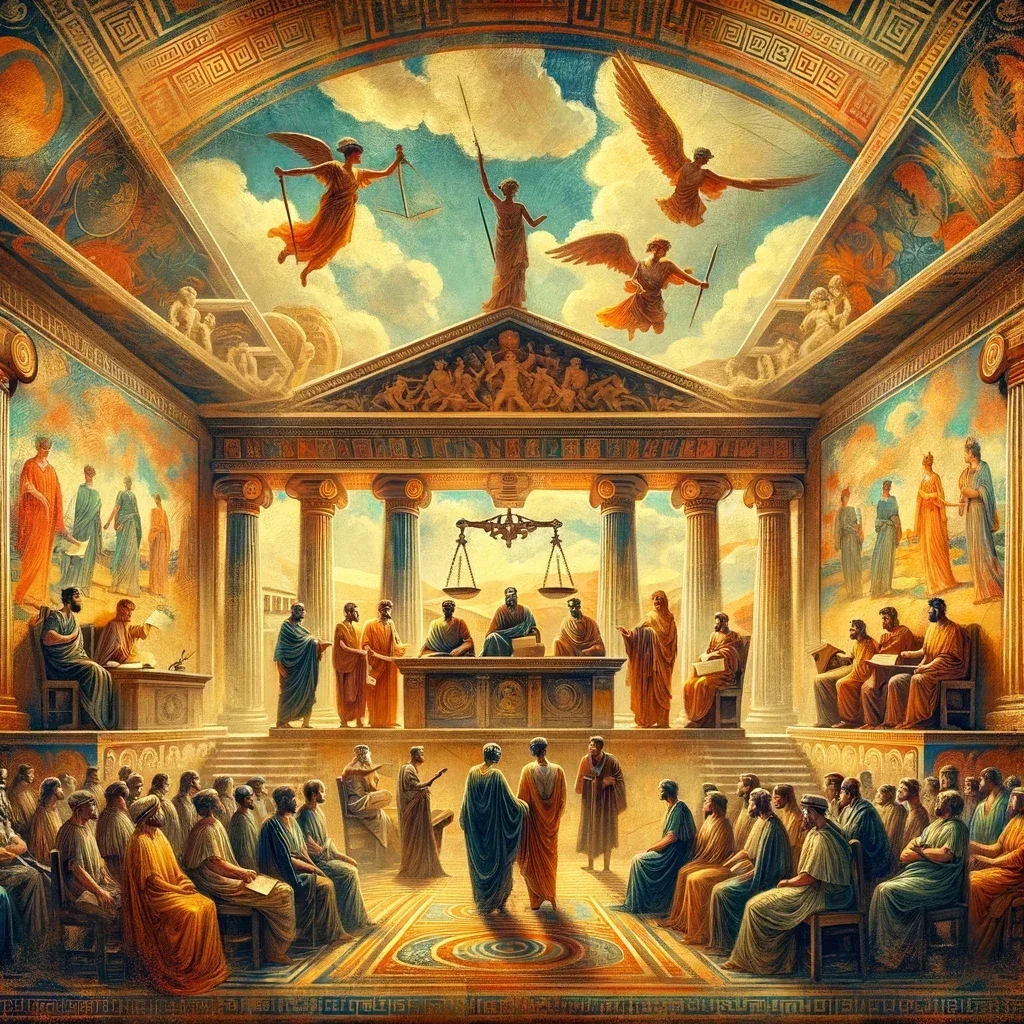
The Nature of the Polis and the Use of Force
Aristotle considered the polis (city-state) as the highest achievement of the human community. For him, the polis existed naturally and was essential for the full realization of the human being as a political animal. Within this context, violence and force were seen as legitimate instruments for maintaining order and protecting the polis against external threats.
Slavery and the Justification of Coercion
One of the most controversial aspects of Aristotelian philosophy is its justification of slavery. Aristotle argued that some individuals were naturally slaves, and that coercion was justifiable to maintain the social and economic structure of the polis. This view reflects the use of violence as a means of maintaining a certain social order, which he considered natural and just.
Ethics and Limitations on the Use of Violence
Despite accepting violence as a political instrument, Aristotle also recognized the need to limit it through ethics and law. He advocated for governance based on virtue, where the use of force should be aligned with the pursuit of the common good.
Modern Implications of Aristotle's Ideas on Violence
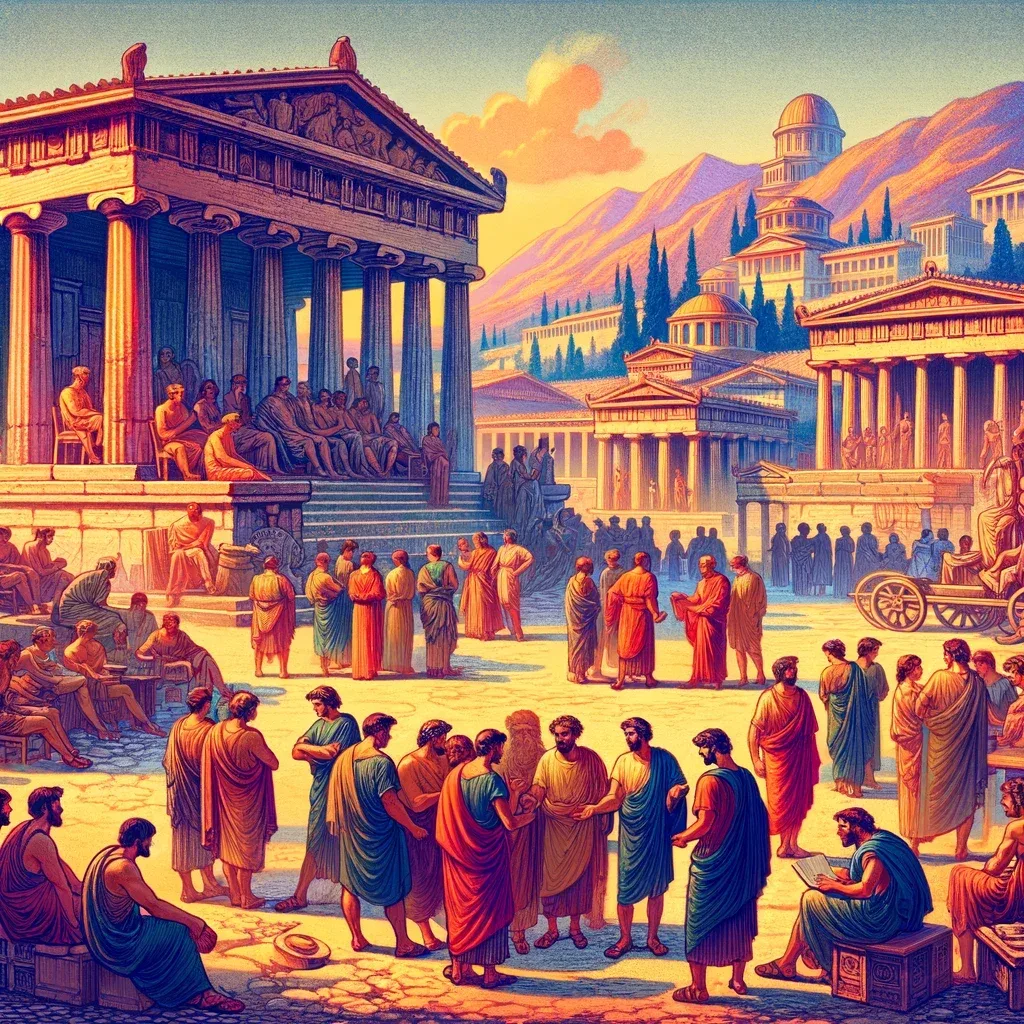
Lessons for Contemporary Government
Aristotle's approach to violence has significant implications for modern governments. His ideas about the need to limit violence for the common good and ethics can be seen as precursors to the principles of the rule of law and democratic governance.
Criticism and Contemporary Perspectives
Aristotle's justifications for slavery and certain forms of coercion are widely criticized in modern times. However, his recognition of the complexity of violence in politics and the need for its ethical regulation remain relevant.
Conclusion
Aristotle's approach to violence in “The Politics” reflects a deep understanding of the complexity of human nature and society. Although some of his views are controversial today, his search for a balanced understanding of violence in political life continues to offer valuable insights. It is a reminder that as we seek social and political harmony, we cannot ignore the harsher realities of power and coercion.
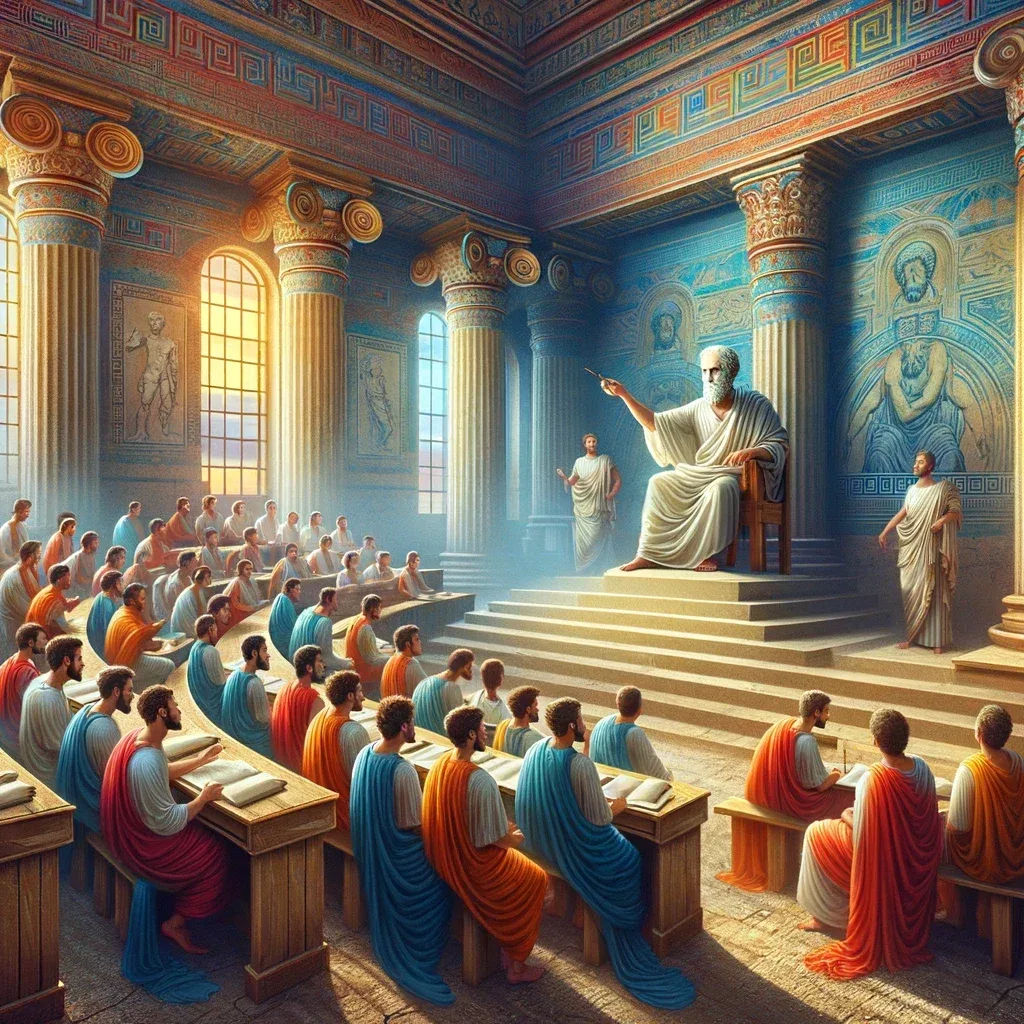
Frequently Asked Questions about “How does Aristotle address violence in his work Politics?”
This FAQ was created to provide a deeper understanding of how Aristotle addresses the theme of violence in his work “Politics”. Here, we answer the main questions that may arise when exploring this complex and fundamental topic in the study of Aristotelian political philosophy.
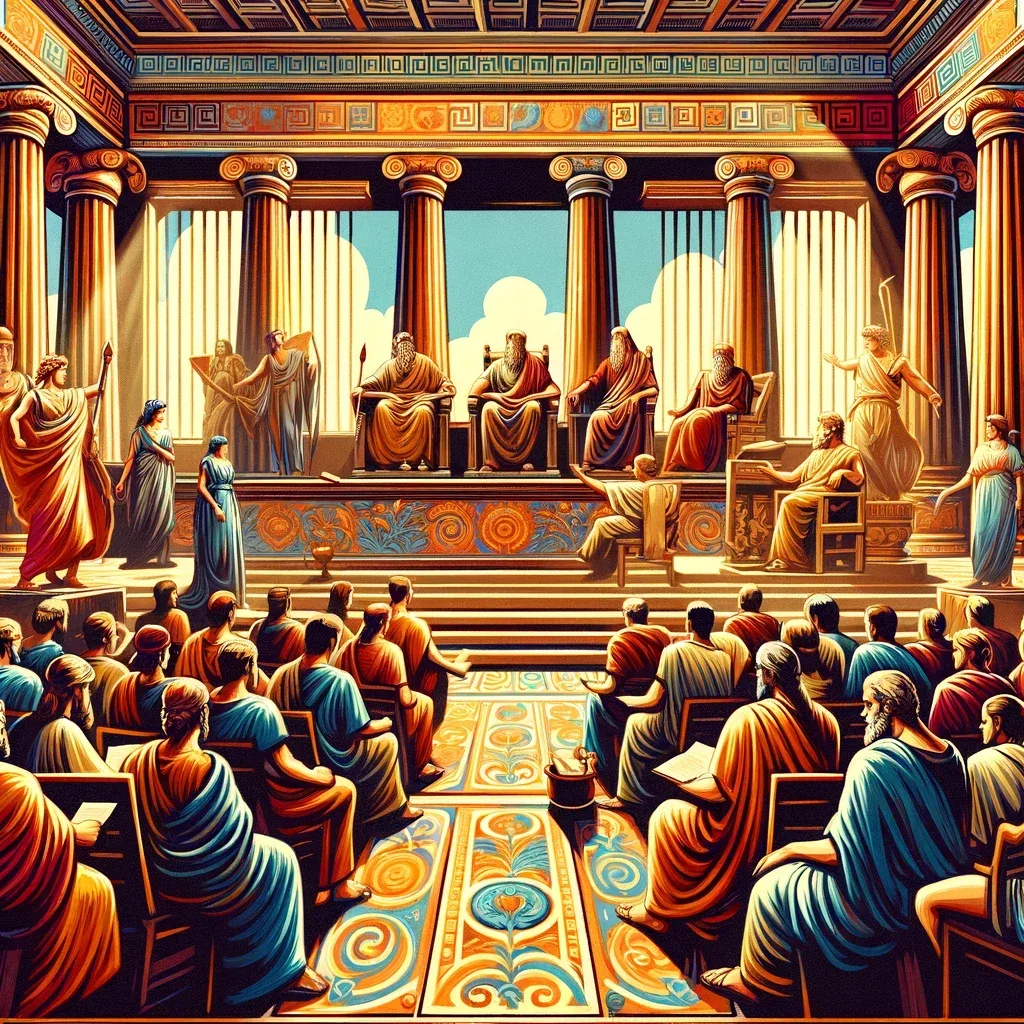
1. What is Aristotle’s general view of violence in “The Politics”?
2. How does Aristotle justify slavery in his work?
3. How relevant is the historical context in understanding Aristotle's ideas about violence?
4. How does ethics limit the use of violence in Aristotle's view?
5. Does Aristotle consider violence to always be negative?
6. What are the modern implications of Aristotle's ideas about violence?
7. How does Aristotle differentiate his approach to violence from that of Plato?
8. Does Aristotle see violence as a means to achieve justice?
9. What is the contemporary criticism of Aristotle's views on violence?
10. Is Aristotle’s “Politics” relevant to current political studies?
This FAQ provides a comprehensive overview of the complexities and nuances in Aristotle's ideas about violence in his work “The Politics”, highlighting their ongoing impact on political and ethical thought.





